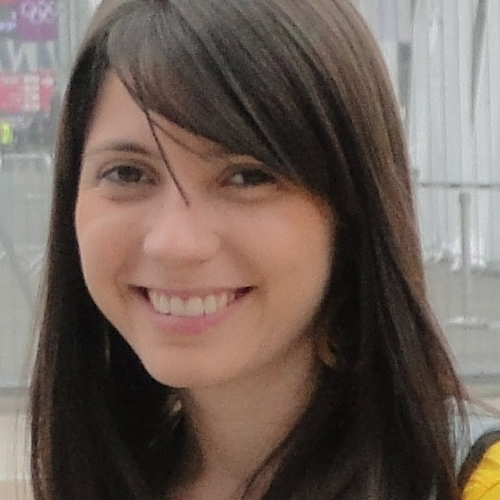Ana Carolina Esteves Dias
About
 I graduated from the University of Campinas (UNICAMP), Brazil in 2012 with a four years degree in Biology. I also hold a degree in Biology Education from the same University (2015). Through my years of studying, I became fascinated by the research field in Applied Ecology and interdisciplinary research concerning social and environmental issues. For that reason, in 2013 I started a Master’s degree program in Ecology regarding fisheries management. This research was guided by a participatory approach. I am a student of the Commons Conservation and Management Research Group (CGCommons), at the Environmental Studies and Research Centre (NEPAM/UNICAMP). As part of the projects conducted by CGCommons I have been facilitating outreach activities at two Brazilian communities in order to foster environmental stewardship and local development. My research interests include participatory monitoring, fisheries and protected areas management, environmental governance, co-management, integrated community-based conservation and development, social ecological resilience and human ecology.
I graduated from the University of Campinas (UNICAMP), Brazil in 2012 with a four years degree in Biology. I also hold a degree in Biology Education from the same University (2015). Through my years of studying, I became fascinated by the research field in Applied Ecology and interdisciplinary research concerning social and environmental issues. For that reason, in 2013 I started a Master’s degree program in Ecology regarding fisheries management. This research was guided by a participatory approach. I am a student of the Commons Conservation and Management Research Group (CGCommons), at the Environmental Studies and Research Centre (NEPAM/UNICAMP). As part of the projects conducted by CGCommons I have been facilitating outreach activities at two Brazilian communities in order to foster environmental stewardship and local development. My research interests include participatory monitoring, fisheries and protected areas management, environmental governance, co-management, integrated community-based conservation and development, social ecological resilience and human ecology.
Place
Tarituba is a coastal community located in Paraty municipality in Southeastern Brazil. Livelihood is based on fishing, tourism, and industry. This region is covered by the Atlantic Forest, which is a Brazilian biodiversity hotspot. Several Protected Areas (PA) are being implemented in Paraty since the 1990’s. Some of them are no-take zones, as the Tamoios Ecological Station, where most part of Tarituba’s fisheries take place. The Tamoios Ecological Station was established in 1990 as a compensatory measure for a nuclear power plant. However, it was implemented almost ten years later. This PA has triggered serious conflicts between fishers and the PA managers, because Tamoios Ecological Station was implemented in a top-down manner. Over the last two years a Commitment Term has been developed between the two parties in order to allow certain fishing gear and vessels inside the PA. Fishers wait for the approval of that Term by the president of the Environmental Agency in charge of protected areas management.
Research
In Tarituba, an opportunity for participatory monitoring has emerged lately as a requirement to approve a Commitment Term that will allow small-scale fisheries inside the Tamoios Ecological Station. In this context, the main goal of my research was to investigate fishers’ ecological knowledge and include it in the design of a participatory monitoring program based on social and ecological criteria applied to the small-scale fishing of Tarituba. The monitoring program was based on the Ecosystem Approach to Fisheries and guided by participatory methodologies. This monitoring program is a pilot project in Brazil of the Socioeconomic Monitoring of the Global Initiative for Coastal Management (SocMon) leaded by NOAA. During the workshops with fishers, managers and other stakeholders, we developed the objectives of the monitoring program and the indicators that address social and ecological aspects of local fisheries. Fishers’ knowledge revealed informal management strategies concerning the reproductive cycle of some target species and cultural importance of fishing to the community. The participatory approach adopted has created an arena for both parties, managers and fishers, which still need to be fostered in order to deal with other conflict situations. In the context of Tarituba, managers want to make sure Tarituba artisanal fisheries do not affect the natural environment and fishers want to continue the main activity that is part of their livelihood since ever. The co-production of knowledge can foster build trust between fishers and managers and problem solving regarding local fisheries. . The approval of the Commitment Term will be an opportunity for new experiments and evaluation of the effectiveness of management strategies applied in the region to date.
Key Publications
- DIAS, A. C. E.; CINTI, A. M. & SEIXAS, C. S. 2015. Participatory monitoring of coastal small-scale fisheries in Brazil and the Southern Cone: a literature review. In: 15th Biennial Global Conference International Association for the Study of the Commons, 2015, Edmonton’. IASC 2015 Book of Abstracts.
- DIAS, A. C. E. & SEIXAS, C. S. 2014. Fisheries Participatory Monitoring at a Southern Brazilian Coastal Community- Tarituba: Reconciling Conservation and Livelihoods. In: 2nd World Small-Scale Fisheries Congress, 2014, Mérida. Proceedings of the 2nd World Small-Scale Fisheries Congress.
- SEIXAS, C. S.; FREITAS, R. R.; DIAS, A. C. E.; ARAUJO, L. G. & TRIMBLE, M. 2014. Contribuições com base na pesquisa científica para o processo de autorização da pesca artesanal na Estação Ecológica de Tamoios) (Processo ICMBio 02070-003813/2009-08). Technical report.
- DIAS, A. C. E.; PRADO, D. S.; SEIXAS, C. S. 2014. Monitoramento Participativo da Pesca Artesanal e de Subsistência de Tarituba – Entendendo o monitoramento e escolhendo indicadores. Support material to participatory workshops.


